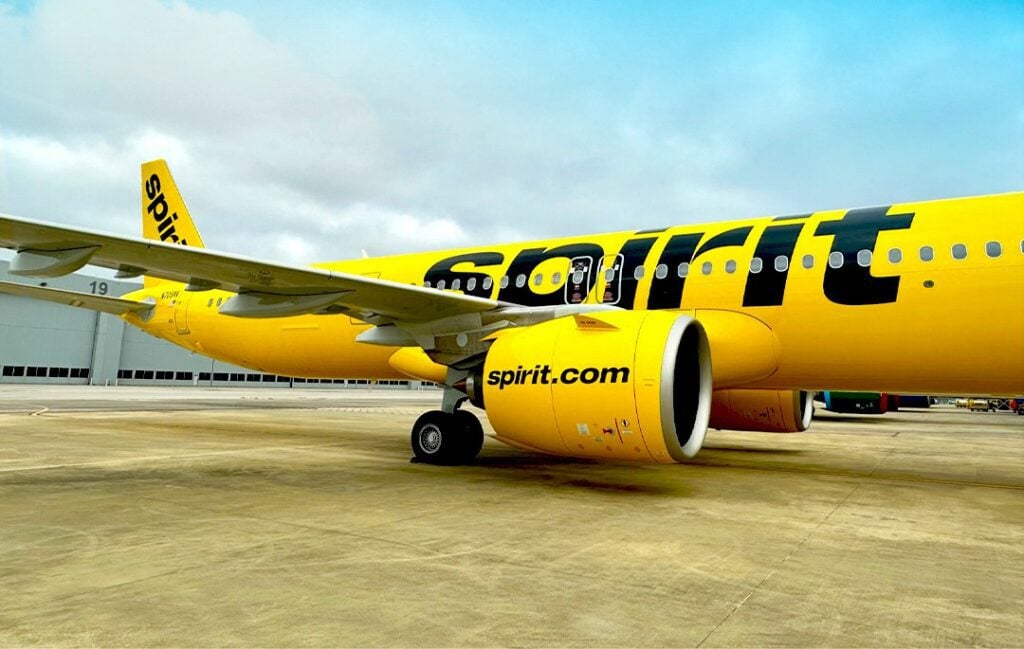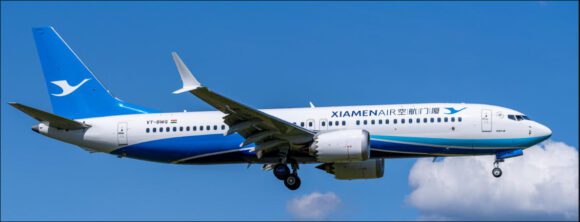
393599161 719431430227415 4290469124081177835 n
Airline PR:
Spirit Airlines, Inc. announced that it agreed with Airbus to defer all aircraft on order scheduled to be delivered in the second quarter of 2025 through the end of 2026 to 2030-2031. These deferrals do not include the direct-lease aircraft scheduled for delivery in that period, one each in the second and third quarter of 2025, respectively. The agreement with Airbus will improve Spirit’s liquidity by approximately $340 million over the next two years.
The aircraft on order has not been changed, and Airbus is scheduled to be delivered in 2027-2029.
As a result of grounded aircraft due to Pratt & Whitney GTF engine availability issues, along with the 2025 and 2026 aircraft deferrals, Spirit announced it intends to furlough approximately 260 Pilots effective September 1, 2024.
As recently announced, Spirit entered into a compensation agreement with Pratt & Whitney regarding its GTF engines, which is estimated to improve Spirit’s liquidity between $150 million and $200 million over the term of that agreement. In addition, Spirit will continue to evaluate using its current financeable asset base to add additional liquidity over the coming months.
“This amendment to our agreement with Airbus is an important part of Spirit’s comprehensive plan to bolster profitability and strengthen our balance sheet,” said Ted Christie, Spirit’s President and Chief Executive Officer. “Deferring these aircraft gives us the opportunity to reset the business and focus on the core airline while we adjust to changes in the competitive environment. In addition, enhancing our liquidity provides us additional financial stability as we position the Company for a return to profitability. We would like to thank our partners at Airbus for their continued support and commitment to the long-term success of Spirit.”
Christie continued, “I am extremely proud of our dedicated Spirit team for their focus and resilience over the last few years. Unfortunately, we had to make the difficult decision to furlough Pilots given the grounded aircraft in our fleet and our deferral of future deliveries. We are doing everything we can to protect Team Members, while balancing our responsibility to return to positive cash-flow and thrive as a healthy company with long-term growth prospects. I thank the Spirit team for continuing to deliver affordable fares and great experiences to Guests.”
The Airbus amendment also defers by two years the exercise dates for optional aircraft included in Spirit’s purchase agreement. There is no change to the number of aircraft on order or Spirit options for additional aircraft.
As previously announced, Spirit has retained Perella Weinberg & Partners L.P. and Davis Polk & Wardwell LLP as advisors. The Company has been taking, and will continue to take, prudent steps to ensure the strength of its balance sheet and ongoing operations, including assessing options to refinance upcoming debt maturities and bonds.
This is big news—it’s expected, but big nonetheless. It needs to be seen alongside similar news from JetBlue.
At first glance, this is a hit for Airbus. But not this time. United Airlines is eager for A321neos powered by Pratt & Whitney GTFs. Happily, both JetBlue and Spirit’s A321neos come just like that.
So rather than seeing this as negative, know that Airbus is not hurting one bit. Both Spirit and JetBlue remain committed to Airbus and are not canceling orders. This is why Airbus seems to be perfectly happy to accommodate both airlines.
This move gives Airbus something it wants—delivery flexibility for its best-selling model, the A321neo. There’s no shortage of customers who will take these delivery slots. At the front of the line is United Airlines, smarting from the MAX 10 blues. Offering these delivery slots to United accomplishes a crucial goal – moving a US major deeper into the Airbus A321 camp.
United recently started taking deliveries of A321neos after decades since its last Airbus new delivery. Accelerating these deliveries secures United and ultimately allows Airbus to move into a better position to replace the airline’s aging A310s and A320s. With United’s preference for Boeing hampered by a MAX rate of 38, this is Airbus’ moment.
Views: 16




